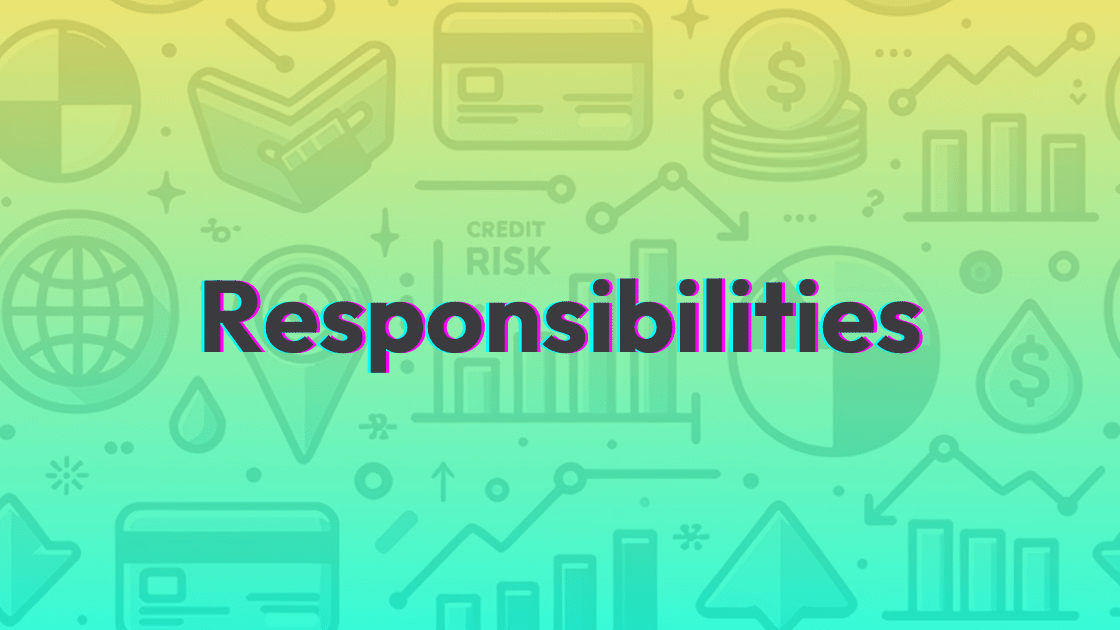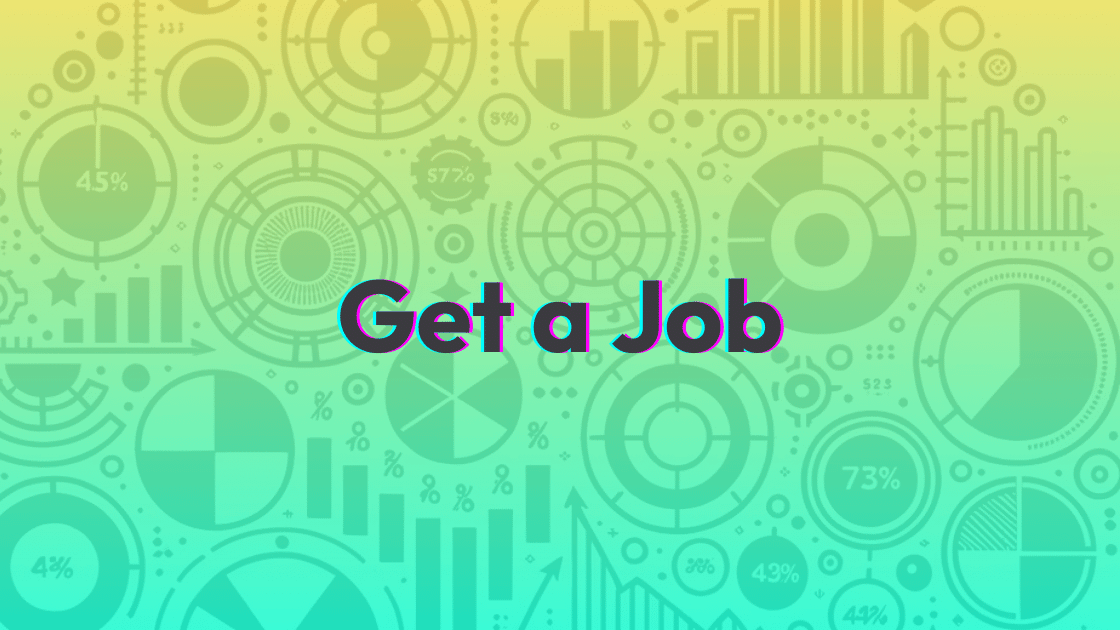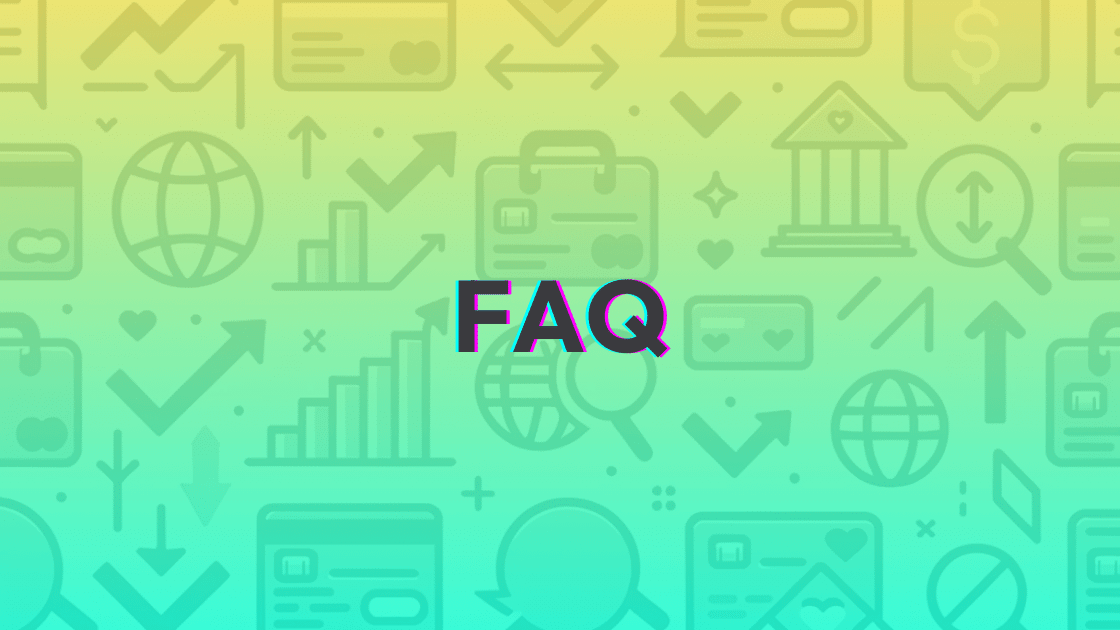Senior Data Analyst in FinTech: Everything You Need to Know to Get a Job in Japan
Data.
The world runs on it.
According to Yuval Noah Harari, author of Homo Deus, data is the modern religion.
So why not Senior Analyse it?
This week I spoke with Delano Stark, a technical recruitmenter specializing in fintech, to learn everything you need to know to land a job as a Senior Data Analyst in FinTech in Japan.
I know what you are thinking.
Yes, Del does have a House Stark from Game of Thrones tattoo.
He is also working with a major Japanese Fintech company to hire a Senior Data Analyst.
He gave insights on the role, responsibilities, required skills, and day-to-day activities. Everything you need to know to excel. (Pun intended)
He also provided Del’s tips on how to get a job in the fintech industry as a Senior Data Analyst.
There’s a lot to cover, so let’s get started.
First the basics:
What is a Senior Data Analyst in Fintech?
As a Senior Data Analyst in fintech you primary focus is credit risk analysis.
You'll assess potential customers to evaluate their creditworthiness using tools like Python, R, and SQL.
Your analyses will guide strategic decisions related to credit and fraud risk. Your company will use your analysis to establish the criteria that potential customers must meet to be considered for credit.
You will be actively involved in developing credit scorecards, setting lending policies, and analyzing various customer behaviors related to risk.
You'll be a key player in impactful decisions; collaborating with senior management and departments like Sales, Marketing, and Product.
Here are the key responsibilities that Del’s client outlined for this position:
Key Roles and Responsibilities
Deep Dive into Economics: You need to understand the unit economics of the business and how credit and fraud risks affect profitability.
Modern Data Science Techniques: You'll apply contemporary data science methods to extract new product performance insights.
Model Development: You will create and own credit models including deployment and ongoing monitoring.
Stakeholder Collaboration: You will work closely with data scientists and business stakeholders to turn predictive models into actionable insights.
Now, let's break down what you'll actually do day-to-day:
A Day in the Life
Your day will typically involve crunching numbers, running analyses, and developing models. You will also need to interact with various departments to align your findings with broader company goals.
You won’t be a report generator. You'll need to translate your findings into understandable insights for non-technical stakeholders. Your knack for clear communication will be just as important as your analytical skills.
Your day will typically unfold like this:
Morning Brief: Check in with your team and review key performance indicators.
Data Diving: Spend the bulk of your morning using Python, R, or SQL to process new sets of data.
Analysis & Reports: Post-lunch, you'll synthesize your findings into digestible reports.
Cross-Departmental Meetings: In the afternoon, you'll often meet with other departments to discuss your findings and their implications.
Strategic Planning: Before calling it a day, spend time updating guidelines for credit risk based on your most recent analyses.
Remember, if you're only interested in creating reports and not in effectively communicating your insights to non-technical stakeholders, this role isn't for you.
What does it take to work as a Senior Data Analyst?
Senior Data Analyst Requirements
Work Experience: 3-6 years in data analytics, preferably related to credit risk or finance.
Educational Background: A bachelor's degree in a quantitative field is ideal.
Technical Skills: Proficiency in SQL, Python, and R.
Language Requirements: Business-level English is a must. Japanese skills are advantageous but not obligatory.
Bonus Points for:
Head in the Clouds: Familiarity with AWS and Github.
Willingness to Learn: Stay current and be open to adopting new technologies.
Adaptability: Be willing to entertain and make suggestions for improvement; don't resist change.
Now let’s go over the 5 skills that will get you hired as a Senior Data Analyst in FinTech:
5 Skills That Will Make You Stand Out
1. Expertise in Credit Risk or Finance
Why It Matters:
Understanding the nuances of credit risk or finance positions you as an invaluable asset to your team. You'll be the go-to person for insights into market trends, customer behavior, and risk assessment, which are the backbone of any fintech company.
How to Build:
Consider taking specialized courses in finance or risk management. Staying updated on industry news and possibly earning certifications like FRM (Financial Risk Manager) can also boost your expertise.
2. SQL Proficiency
Why It Matters:
SQL is the cornerstone for data manipulation and retrieval. Your ability to write complex queries will streamline data analysis, making you more efficient and effective in your role.
How to Build:
Practice, practice, practice. Make use of online platforms that offer SQL exercises. Additionally, you might consider formal training or courses to get advanced knowledge.
3. Python Skills
Why It Matters:
Python is one of the most versatile languages in data analytics. Your proficiency in Python will not only make data manipulation easier but also enable you to implement machine-learning algorithms for more advanced analytics.
How to Build:
Start with basic Python courses and work your way up to data science and machine learning courses. Real-world projects will give you practical experience, so don't hesitate to create your own or contribute to open-source projects.
4. AWS Knowledge
Why It Matters:
AWS (Amazon Web Services) offers a robust, cloud-based platform for scalable data storage and analytics. Knowing your way around AWS signifies that you can navigate and utilize the cloud effectively, an increasingly essential skill.
How to Build:
AWS offers its own set of certifications ranging from beginner to advanced. Consider starting with the AWS Certified Solutions Architect – Associate exam and then explore more specialized certifications.
5. Interpersonal and Communication Skills
Why It Matters:
Technical skills are crucial, but the ability to communicate your findings to non-technical stakeholders is invaluable. You'll act as a bridge between the data and business strategy teams, making your communication skills essential.
How to Build:
Join workshops that focus on presentation and communication skills. Regularly participating in cross-departmental meetings will give you the real-world practice you need. Don't underestimate the power of storytelling in data—master it.
What are the career prospects for someone passionate about credit risk? Let’s dive in.
Career Progression
As teams expand, so do opportunities for responsibility and growth. According to Delano, you might start as a high-level individual contributor but the sky's the limit.
Potential paths include:
Principal Data Analyst: Deepening your specialized skills, and leading larger projects.
Data Analytics Manager: Overseeing a team of data analysts, and being responsible for larger segments of data analytics within the company.
Data Analytics Director: Taking on more organizational responsibilities, driving the data strategy for the business.
Chief Risk Officer: Taking your analytics expertise into the C-suite, making organizational-wide decisions related to risk management.
Ready to apply? Here are the things Del recommends keeping in mind.
Tips for Landing the Job
CV Tips
De emphasizes the importance of making your CV not just a list but a narrative that aligns closely with the job description.
Here's how you can turn your CV into an engaging story:
Enumerate and Rank Tech Tools: Don’t just list SQL, Python, or R. Instead, rank your proficiency with these tools on a scale, say from 1-10, to give the employer a clear picture of your skills.
Position the Spotlight: Place your most relevant experiences and skills at the top of your CV. If you've worked in fintech or have substantial experience in credit risk, make that the first thing they read about you.
Bold is Beautiful: If you've worked in environments that use the same tech stack as the prospective employer, don’t hesitate to bold these terms. It draws attention to your most relevant skills.
Version Control: It’s not just about saying you've worked with AWS or Python. Specify which versions you've used and whether you're comfortable with the latest updates. This indicates your willingness to adapt and learn.
Give me the Brief: Write a brief excerpt at the top of your CV. This could be a single line that says something like, “Experienced in applying data analytics within the retail banking sector to optimize credit risk assessments.”
Highlight and Align: Always try to align your CV with the job description. Use keywords from the job listing within your CV, but only if they accurately describe your skills.
Interview Tips
Know the User Experience
Before you walk into that interview room, virtual or otherwise, you must have firsthand experience of the product. This shows not just that you're interested in the company but that you've taken the time to understand the nuances of their services.
Make Suggestions
Armed with your user experience, be prepared to offer constructive feedback. This demonstrates your analytical mindset and eagerness to contribute from Day One.
Three-Tiered Examples
For each tool or environment you’ve worked in, Delano suggests coming up with three scenarios:
Good: Projects where everything went smoothly and why.
Mediocre: Instances where you hit roadblocks but managed to overcome them, detailing how you did it.
Bad: Lessons learned from projects that didn't go as planned.
Opinions Matter
Del advises having an informed opinion about the tech stack you've worked on. Know some good uses and bad uses for each tech, and be ready to discuss it.
Master the Art of Communication
Being likable is more than just putting on a smile. Delano emphasizes the importance of putting yourself in the interviewer's shoes. What would you want to hear if you were hiring for this role? Ensure your communication is not just articulate but also relatable.
The Happiness Quotient
Even if you've had a rough day, it’s essential to bring positive energy to the interview. This will not only make the conversation more pleasant but can also subtly indicate that you're someone who can maintain a good attitude even under stress.
Company and Interviewer Research
It's often said that knowledge is power, and this is particularly true in interviews. Research your interviewer, and discuss what you’ve learned during the conversation. This can be a game-changer and significantly boost your chances of making a lasting impression.
Tech Check
A small but vital point—ensure all your technology is up to date before the interview. If you're going to use Google Meet or Zoom, log in 15 minutes before to test all functionalities. A smooth tech experience implies you’re organized and respect the interviewer’s time.
Structured Notes
While Del suggests that you don't need an exact script for the interview, jot down key points you want to hit during the discussion. This can act as a roadmap to ensure you cover all your bases.
Typical Interview Process
Initial Interview: To assess history, cultural fit, and domain understanding.
Analytical Exercise: To gauge your analytical skills.
Final Interview with Manager: More in-depth discussion and role-specific queries.
HR Round: Mostly a formality, to dot the i's and cross the t's.
Why People Have Failed
Del listed common pitfalls that include not doing enough research on the company or the role, and neglecting to prepare for interviews, or not downloading the company’s product and using it.
When job searching, you should know the other titles used for this position, below is a list. I hope it helps.
Alternative Titles for Senior Data Analyst
The role may sometimes be described differently in various organizations. For instance, it could be termed a Data Engineer position, where the focus might still be largely on data analysis and decision-making but with different tools and technologies.
Here is a list of alternative titles for a Senior Data Analyst:
Senior Business Analyst, Data & Risk: This role would have you focus on the intersection of business strategy and risk analysis, using data analytics as a key tool.
Data Analytics Manager: For those leaning more towards a managerial path, this role involves not just hands-on data work but also team leadership.
Lead Risk Analyst: Emphasizes the risk aspect, but requires a deep understanding of data and the ability to analyze it to assess and mitigate risks.
Quantitative Analyst: Often found in finance and trading sectors, this role heavily relies on statistical and mathematical models to analyze data.
Machine Learning Engineer, Risk Analysis: For those who want to dive deeper into predictive modeling and AI, this role combines data analysis with machine learning to predict risk factors.
Business Intelligence Developer: Focused more on the tech side, you'd work closely with business executives to translate business goals into actionable insights through data analysis.
Senior Data Strategist: This role leans more towards shaping the business strategy informed by data analytics, which often overlaps with a Senior Data Analyst's duties.
Principal Data Scientist, Credit Risk: A more advanced position, often requiring a stronger statistical or machine learning background to improve or develop new risk models.
Advanced Analytics Consultant: If you prefer a consulting role, this position often collaborates with different departments to use data for solving a variety of business problems, including risk assessment.
Data Operations Lead: This could be a fit for you if you enjoy overseeing the technical aspects and ensuring that data is accessible and usable for analysis by different departments.
Now let’s go over some of the questions that Del gets about working with this company.
Senior Data Analyst FAQ
How does a Senior Data Engineer differ from a Senior Data Analyst?
While both roles are integral to data-driven decision-making, a Data Engineer typically focuses more on the infrastructure and tools that enable data analysis.
Check out our blog here for more info on being a Senior Data Engineer in AI and machine learning!
How do Senior Data Analysts interact with other departments?
Through periodic meetings and collaborative projects, often translating complex data into actionable insights.
What’s the Difference Between a Data Analyst and a Data Scientist?
While both roles require a strong statistical and analytical skill set, a Data Scientist often handles more complex data and utilizes advanced machine learning algorithms. As a Senior Data Analyst, you'll focus on interpreting existing data to provide actionable insights.
How Important is Domain Knowledge?
Domain knowledge can significantly accelerate your understanding of the data. For instance, if you're in fintech, understanding credit risk is invaluable. However, Delano often emphasizes that a quick learner can adapt to a new domain effectively.
Do I Need to Know Big Data Technologies?
Big Data technologies like Hadoop or Spark are not a strict requirement but can certainly give you an edge, particularly in companies that deal with enormous datasets.
What Tools are Essential for a Senior Data Analyst?
SQL for database queries, Python or R for data manipulation and statistical analysis, and Tableau or Power BI for data visualization are often considered essential.
Is an Advanced Degree Required?
While a Bachelor's in a quantitative field is often a minimum, many find success in this role without an advanced degree, depending on their work experience and skill set.
Can I Transition from a Software Engineer Role?
Yes, many software engineers transition into data roles. A strong coding background can be an asset, especially for data manipulation and model building.
What Career Progression Looks Like for a Senior Data Analyst?
You can move into specialized roles such as Machine Learning Engineer or Data Architect. Alternatively, managerial positions like Head of Data Analytics or even C-level roles like Chief Data Officer could be your next step.
Is Remote Work Common for Senior Data Analysts?
Given the nature of the work, many companies offer remote or hybrid work options, although this varies by company policy.
How Do I Keep My Skills Updated?
Continual learning is key. This means staying abreast of industry trends, learning new tools, and even diving into new domains to diversify your skill set.
Conclusion
Delano stressed that the Senior Data Analyst role constantly evolves, particularly in the fintech sector. Adaptability, willingness to learn, and a strong foundation in data analytics are your tickets to a rewarding career in this field.
If you’re ready to take on this challenge in Tokyo, message us using this link to speak with Del.




















![Presales Engineer Salary in Japan [NO ADS]](https://images.squarespace-cdn.com/content/v1/5c6e2dad94d71a1ea569fca0/1726807879580-PBSOTUL03B7DQRADXG1U/Presales+Engineer+Salary+blog+%28800+x+600+px%29.png)









